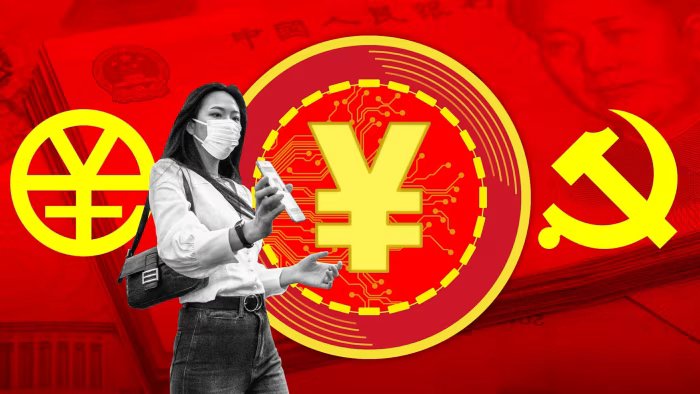- USD/CHF appreciates as the US Dollar is strengthening, as investor sentiment improves.
- AmCham China President Michael Hart remarked that it’s encouraging to see the US and China reviewing tariffs.
- Analysts argue that currency intervention by the SNB may be more effective than additional rate cuts.
USD/CHF recovered its previous session losses and is trading around 0.8320 during the Asian session on Friday. The US Dollar (USD) is strengthening as investor sentiment improves, driven by a Bloomberg report suggesting China may suspend its 125% tariffs on select US imports, including medical equipment, ethane, and aircraft leasing.
Sources familiar with the matter indicated that Chinese officials are particularly considering a waiver on tariffs for aircraft leases. However, China’s Ministry of Finance and the General Administration of Customs have yet to issue any official comments.
Michael Hart, President of the American Chamber of Commerce in China, remarked that it’s encouraging to see the US and China reviewing tariffs. Hart noted that while exclusion lists for specific categories are reportedly in the works, no official announcements or policies have been released yet. Both China’s Ministry of Commerce and the US Department of Commerce are currently gathering input on the matter.
Optimism around US trade negotiations is also supporting the Greenback, with Reuters reporting progress in early talks with key Asian allies such as South Korea and Japan. The Trump administration could reduce tariffs on Chinese imports, depending on the progress of potential talks with Beijing. China expressed a willingness to engage in discussions.
However, the Swiss Franc (CHF) gained ground, reaching its strongest level in over a decade against the USD as of April 21. This strength is largely due to increased demand for safe-haven assets amid global trade uncertainties.
The appreciation of the CHF has put downward pressure on import prices, challenging the Swiss National Bank’s (SNB) inflation target of 0–2%, especially with inflation hovering near zero. With the SNB’s key interest rate at just 0.25% and likely to decline further, analysts believe that currency intervention may be a more effective approach than rate cuts. Nonetheless, the SNB has reiterated that it does not manipulate the currency, emphasizing that any interventions are solely aimed at maintaining price stability.
Swiss Franc FAQs
The Swiss Franc (CHF) is Switzerland’s official currency. It is among the top ten most traded currencies globally, reaching volumes that well exceed the size of the Swiss economy. Its value is determined by the broad market sentiment, the country’s economic health or action taken by the Swiss National Bank (SNB), among other factors. Between 2011 and 2015, the Swiss Franc was pegged to the Euro (EUR). The peg was abruptly removed, resulting in a more than 20% increase in the Franc’s value, causing a turmoil in markets. Even though the peg isn’t in force anymore, CHF fortunes tend to be highly correlated with the Euro ones due to the high dependency of the Swiss economy on the neighboring Eurozone.
The Swiss Franc (CHF) is considered a safe-haven asset, or a currency that investors tend to buy in times of market stress. This is due to the perceived status of Switzerland in the world: a stable economy, a strong export sector, big central bank reserves or a longstanding political stance towards neutrality in global conflicts make the country’s currency a good choice for investors fleeing from risks. Turbulent times are likely to strengthen CHF value against other currencies that are seen as more risky to invest in.
The Swiss National Bank (SNB) meets four times a year – once every quarter, less than other major central banks – to decide on monetary policy. The bank aims for an annual inflation rate of less than 2%. When inflation is above target or forecasted to be above target in the foreseeable future, the bank will attempt to tame price growth by raising its policy rate. Higher interest rates are generally positive for the Swiss Franc (CHF) as they lead to higher yields, making the country a more attractive place for investors. On the contrary, lower interest rates tend to weaken CHF.
Macroeconomic data releases in Switzerland are key to assessing the state of the economy and can impact the Swiss Franc’s (CHF) valuation. The Swiss economy is broadly stable, but any sudden change in economic growth, inflation, current account or the central bank’s currency reserves have the potential to trigger moves in CHF. Generally, high economic growth, low unemployment and high confidence are good for CHF. Conversely, if economic data points to weakening momentum, CHF is likely to depreciate.
As a small and open economy, Switzerland is heavily dependent on the health of the neighboring Eurozone economies. The broader European Union is Switzerland’s main economic partner and a key political ally, so macroeconomic and monetary policy stability in the Eurozone is essential for Switzerland and, thus, for the Swiss Franc (CHF). With such dependency, some models suggest that the correlation between the fortunes of the Euro (EUR) and the CHF is more than 90%, or close to perfect.







